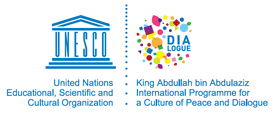Title: Internet Archive: Digital Library of Free Books, Movies, Music & Wayback Machine
Link: http://archive.org/index.php
Media type: Multimedia Webpage Moving Images Print Photo Audio
Age: Primary, Secondary, Tertiary
Language: English
Subtitles:-
Length: –
MIL modules and units: M6u1 M6u2 M7u1 M8u2 M8u3
Subject tag: Languages social studies, Art, music,
Theme tag: Communication, technology and media, Education
Internet archive is an NGO situated in San Francisco USA. It houses a variety of digital libraries/collections and can be accessed through the internet. Here you can find films the copyright of which has been waived, is no longer valid or the films are considered “Public Domain”. This means one can freely show or use the material for private production. In Internet Archives you will primarily find material of historic interest, but there is also a chance of finding the odd gem from more recent times. For publishing material on the internet this is an invaluable tool often used by journalists. Every website ever published is stored at Internet Archives and are all searchable through what is known as “Wayback machine”.

